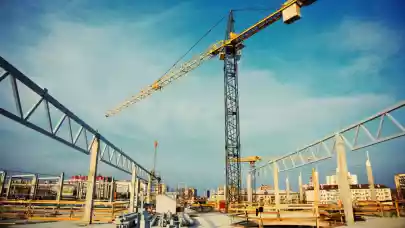
The construction industry seems to have been relatively less affected than some other industries (like tourism) as most large projects continue during the lockdown measures across the region. The Eastern European Construction Forecasting Association has published a COVID-19 update on the construction sectors of Bulgaria, Croatia and Slovenia.
EECFA (Eastern European Construction Forecasting Association) is conducting research on the construction markets of 8 Eastern-European countries such as Bulgaria, Croatia, Romania, Russia, Serbia, Slovenia, Turkey and Ukraine.
Bulgaria
According to the Association of Construction Entrepreneurs, there are no frozen residential construction sites, but it is hard to imagine that the work is going to continue with the same volumes. Additionally, obtaining construction permits is becoming increasingly difficult despite the effort of municipalities to introduce e-services.
Construction works of the largest infrastructure projects continue at present, but with a slower pace since there are difficulties in deliveries of construction materials. Delays are expected on the Bulgarian part of ‘TurkStream’ due to the obligatory 14-day quarantine for foreign workers who are employed on the site.
Croatia
No strict ban was imposed specifically on construction, but the industry was restricted by the broad limitation, from which it was not excepted, to working from home. That said, it appears that work continued on a number of construction projects, including those of the City of Zagreb and politically connected private firms and the Pelješac Bridge, either in violation of this limitation or pursuant to special exemptions. Also, after the Zagreb earthquake, a number of firms with the appropriate equipment were permitted to clear debris and blow things up
Factors limiting the construction sector's performance:
- There is no lack of construction materials, particularly in view of the fact that most building has ceased
- Most tourism-related construction for the coming season has been completed since that season is at hand
- But other construction projects are not moving forward except for those considered essential
- Croatia's heavy dependence on tourism, and the likelihood that tourism will not recover for years, means that construction, and the Croatian economy in general, will be very negatively affected for a significant period of time
Slovenia
The COVID-19 pandemic has reached the Slovenian construction industry in a good shape. New construction contracts strengthened in H2 2019, resulting in some of the fastest growth of construction in early 2020 in the whole EU. The activity continued into March 2020 even though the lockdown measures were already implemented.
However, a decline is expected as halting construction works are affecting the entire sector:
- There are some disruptions in the supply of materials as some manufacturers have stopped production and others have reduced production.
- Construction work is being done less intensively mainly because of measures to protect workers.
- Some foreign contractors have problems mainly with the logistics of their workers on projects in Slovenia.
Yet, the construction industry has been relatively less affected than some other industries (like tourism) as most large projects continue even during the lockdown measures. The concern is the absence of real estate contracts as the risk of making long-term investment decisions has also increased.
Economic damage to construction segments will crucially depend on the duration of the crisis and the uncertainty it brings. According to some estimates, the short-term crisis is expected to result in a 5% drop in GDP. First indications that the return to the normal operation of the Slovenian economy is near were the announcements that several lockdown measures were to be relaxed by the end of April 2020. However, the actual fall of the economic activity will depend on the effectiveness of the state's actions, where Slovenian politicians have promised one of the largest stimulus packages in the EU – estimated at more than 6% of its GDP - but they will have to be implemented in an effective way.



